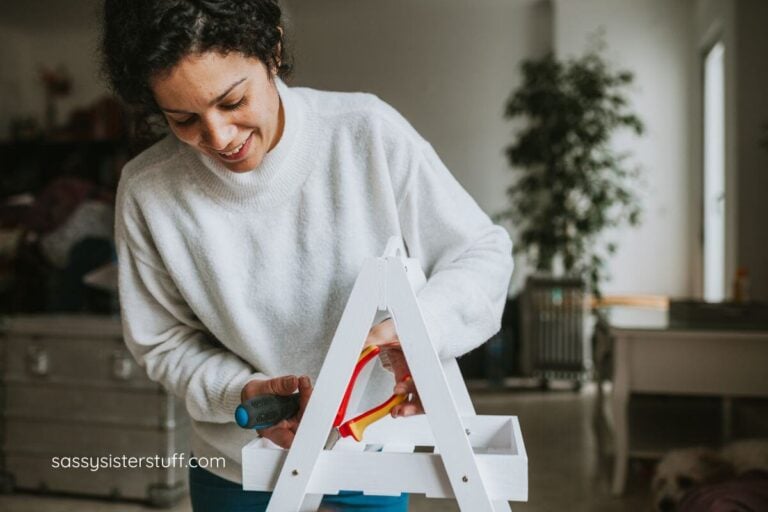10 Things Couples Over 40 Understand That Younger Couples Don’t
Relationships can look very different after forty. The years bring new challenges, unexpected joys, and a perspective that’s hard to imagine when you’re just starting out.
If you’ve ever wondered how some couples seem to grow closer as time goes on, there are a few lessons they’ve likely picked up along the way. These are the kinds of things that don’t always come up in early dating, but become the foundation of lasting love.
Tiny daily gestures build lasting emotional reserves

Small actions each day add up to something much bigger. A quick smile, a gentle touch, or a simple thank you shows care without needing words.
These tiny moments create a safe space in your relationship. Life’s stress can pile up, and little gestures become a way to refill your emotional tank.
They build trust and comfort, so you both feel connected even during hard times. You don’t need grand plans to keep love alive.
It’s the habit of noticing each other in small ways that matters. These acts become part of your routine and help you stay close.
Say your needs clearly—mind reading rarely works
It’s easy to think your partner should just know what you want. Expecting them to read your mind often leads to confusion and hurt feelings.
Saying what you need out loud makes things simple. Clear communication saves a lot of trouble.
You don’t have to guess what your partner is thinking, and they don’t have to guess yours. Sharing honestly also makes it easier to solve problems without frustration.
Your partner is not a mind reader. When you speak up clearly, your relationship has a better chance to grow in a healthy way.
Equality in roles keeps partnerships strong

Sharing roles makes your relationship healthier. It’s not about who does more but about working together.
This balance helps avoid resentment and keeps things fair. Dividing chores and responsibilities based on what works best for both of you makes everyday life smoother.
Equality means listening and supporting each other’s needs. When both partners feel respected and trusted, the bond grows stronger.
By sharing emotional work, you both lighten the load. Equality in your roles isn’t perfect every day, but the effort matters most.
Unspoken expectations lead to misunderstandings
When you don’t talk openly about what you want or need, small problems can turn into big fights. You might assume your partner knows what you expect, but they often don’t.
Unspoken expectations build up like hidden tension. You may start to feel ignored or unappreciated without realizing why.
Being clear about your needs helps prevent these issues. Sharing your worries stops misunderstandings before they grow.
You learn to see things from each other’s point of view. This small habit makes a big difference in your relationship.
Aging together means evolving physical and emotional needs

As you and your partner grow older, you’ll both notice changes in your bodies. You might not have the same energy or stamina as before.
Physical needs shift, and understanding this helps avoid frustration. Your emotional needs change too.
What you wanted from each other when you were younger might not be the same now. You may crave deeper conversations or more comfort.
You learn to communicate these shifts better. Being open about how you feel and what you need keeps your connection strong.
Intimacy grows beyond just physical touch. It includes sharing thoughts, supporting each other’s dreams, and enjoying quiet moments together.
When you accept and adapt to these evolving needs, your bond can grow even stronger. Aging together means growing with understanding and care.
Sharing stories with your partner is more than just talking. It helps you understand each other deeply.
When you tell stories about your past, dreams, or daily moments, you build a strong bond. Over time, these shared stories become a special part of your relationship.
They create a safe space where both of you feel heard and valued. This makes it easier to connect when times are tough.
Listening closely to your partner’s stories lets you see the world through their eyes. That helps you respond with kindness and patience.
As your story bank grows, so does your connection. These memories become your shared history, giving your relationship a solid foundation.
Patience grows with long-term love

When you have been with someone for a long time, patience starts to come more naturally. You learn to accept that no one is perfect, including yourself.
Small annoyances or disagreements don’t feel as urgent or upsetting as they might when you’re younger. You also see how people change over time.
Your partner might develop new interests or habits, and patience helps you support those changes without frustration. Sometimes, it takes time to work through problems or misunderstandings.
Being patient gives you space to listen and understand each other better. You stop rushing to fix things and instead focus on staying connected.
Patience also means forgiving mistakes and giving each other grace. When you practice patience, your bond deepens and feels more steady.
Respect personal space and independence
When you’ve been together for a long time, you learn how important it is to give each other space. You don’t have to be joined at the hip to feel close.
Everyone needs time alone to recharge, think, or just do what they love. Respecting your partner’s independence means you trust them.
You support their hobbies and interests, even if they don’t always include you. This balance helps your relationship grow stronger.
You also learn to set healthy boundaries without hurting feelings. Saying no sometimes or having separate plans doesn’t mean you care less.
When you value your own space and your partner’s, you avoid unnecessary fights. You both get the freedom to be yourselves while still being a team.

When things get hard, humor can be a powerful tool for you and your partner. Laughing together lightens the mood and makes problems feel less overwhelming.
It helps you both see challenges from a different, less stressful angle. Sharing a joke or an inside laugh acts like a small break from tough times.
These moments remind you that you’re a team, facing things side by side. Using humor doesn’t mean ignoring serious issues.
Instead, it helps you handle them with a bit more calm and patience. Laughter can build trust and resilience between you.
It keeps your connection strong and makes it easier to bounce back after rough patches.
Consistent communication beats assumptions
Assuming what your partner thinks or feels rarely helps. Instead, you talk regularly to check in.
Making time for honest conversations keeps small issues from growing into big problems. Communication isn’t just about solving problems.
It’s about sharing your day, your worries, and your joys. This steady connection helps you feel close, even when life gets busy.
Sometimes, you might feel like your partner should just know what you need. But clear and kind communication works better than guesses.
When you share your thoughts openly, you build trust and avoid misunderstandings. By choosing to communicate often, you strengthen your bond.
Building Emotional Maturity Together
You and your partner learn to handle feelings in healthier ways as you grow together. This means changing how you talk and what you value in each other’s lives.
Communication Styles That Deepen Connection
By the time you’re over 40, you likely know that simple talking isn’t enough. You focus on listening deeply and sharing honestly without blame.
You use “I” statements like, “I feel…” instead of “You always…” to avoid fights. You also read nonverbal signals better.
When words don’t come out right, you notice tone, expressions, and body language to understand your partner’s mood. This helps you respond with kindness instead of frustration.
Checking in regularly about small things stops problems before they grow. You know timing matters, so you pick calm moments for serious talks.
Respecting Changing Priorities

As you both age, your goals and daily routines shift. You may care more about health, quiet time, or hobbies than when you were younger.
Respecting these changes means you don’t expect your partner to stay the same. Supporting each other’s new interests, like a fitness class or book club, shows you value their happiness.
Sometimes you’ll give space for these things without feeling left out. You also agree on big decisions differently, balancing work, family, and personal time with respect.
Life after 40 often brings big changes that affect you both. You’ll face shifts in work and health that require teamwork and clear communication.
Handling these moments well can strengthen your bond and help you support each other better.
Balancing Career and Relationship Goals
At this stage, your career may still be important, but finding balance with your relationship matters even more. You both might have new job demands or be thinking about retirement.
You need to talk openly about your priorities. Set time aside for each other, even when schedules get busy.
Small habits like regular check-ins or planning dates can keep you connected. Be flexible if work demands change suddenly.
Remind yourselves that your relationship needs attention too. Sharing your career plans helps avoid misunderstandings.
Be honest about stress or excitement around work. Supporting each other during career changes builds trust and keeps you aligned as a couple.
Supporting Each Other Through Health Changes
As we get older, health can start to shift in ways we didn’t expect. Maybe you find yourself with less energy or dealing with new aches that weren’t there before.
These changes can sneak up on daily routines and even affect how you feel about yourself. Sometimes, it can be tough to talk about what’s going on, but opening up with your partner can make a real difference.
Try to listen to each other without jumping in to fix things right away. Gentle encouragement goes a long way, especially when it comes to building new habits together.
You might decide to go to doctor appointments as a team or read up on health topics that matter to you both. Facing these changes together can help you feel more connected and supported, no matter what comes your way.







